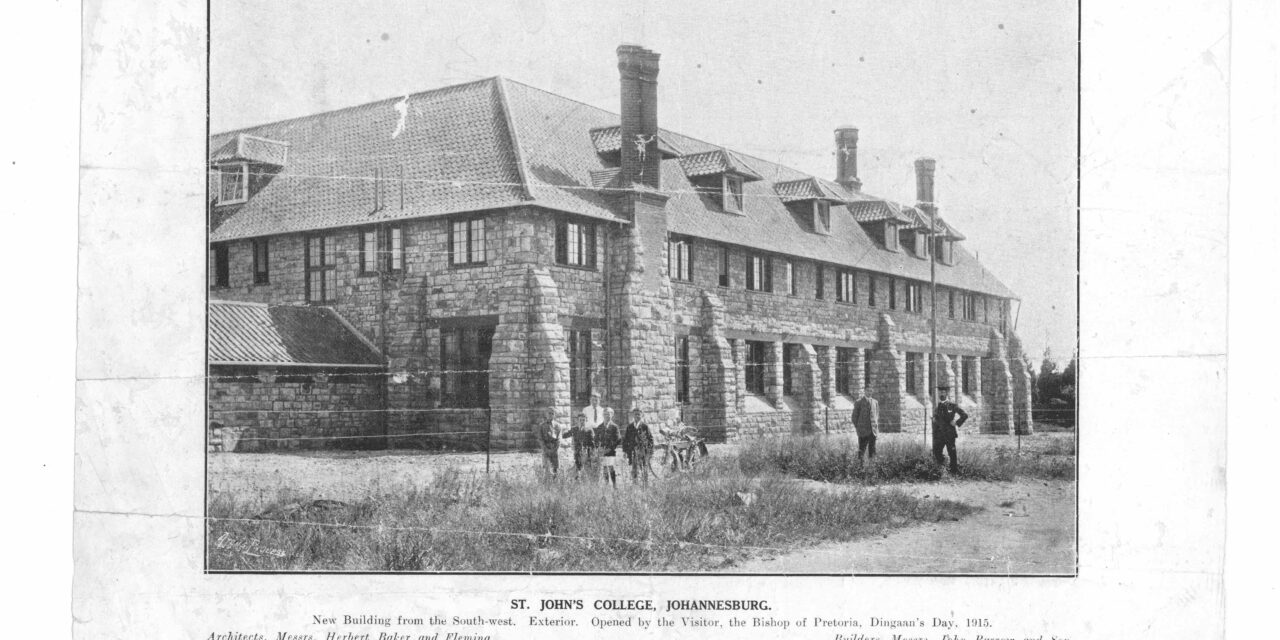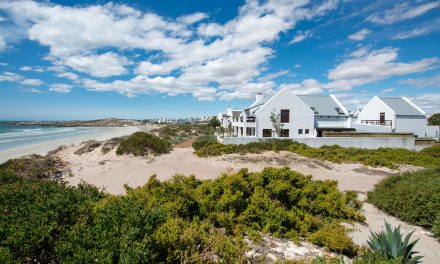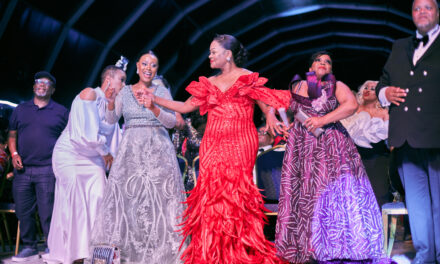St John’s College Unveils 125 Heritage Exhibition to Mark 125th Anniversary
Johannesburg, South Africa (July 25, 2023) – St John’s College is pleased to announce the unveiling of an exhibition marking its 125th anniversary. The permanent installation in the Rene England Auditorium is now open to the College community.
The exhibition showcases the history of St John’s College, from its founding in 1898 to the present day, and is themed around the idea of Lux, Vita Caritas – the school’s motto, meaning Light, Life, and Love. Lux is the Light of Christ, as described in the Gospel of St John: “In him was life; and that life was the Light for all people” (John 1:4).
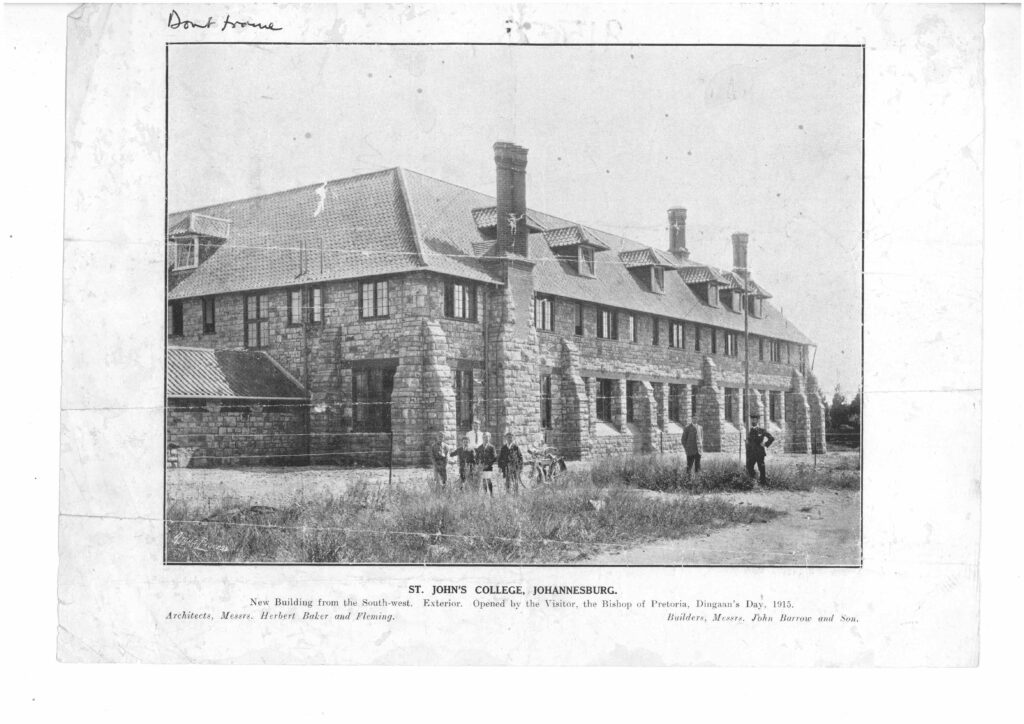
The exhibition resonates with generations of friends and family of St John’s College, who have been touched by the school’s illuminating and empowering light. This light symbolises hope, grace, and goodness and is what has helped shape the boys and girls who have walked through its doors to leave its gates rightly trained in body, mind and character. Generations of students have become productive, thoughtful, and engaged citizens, irradiating a path to a future filled with faith and possibility.
Featuring photographs, documents, and artefacts from the College archives, as well as personal stories from past and present students, staff, and Old Johannians, the exhibition tells the story of the school’s history, allowing us to see and reflect on our world, and engage with it in the past, present, and future.
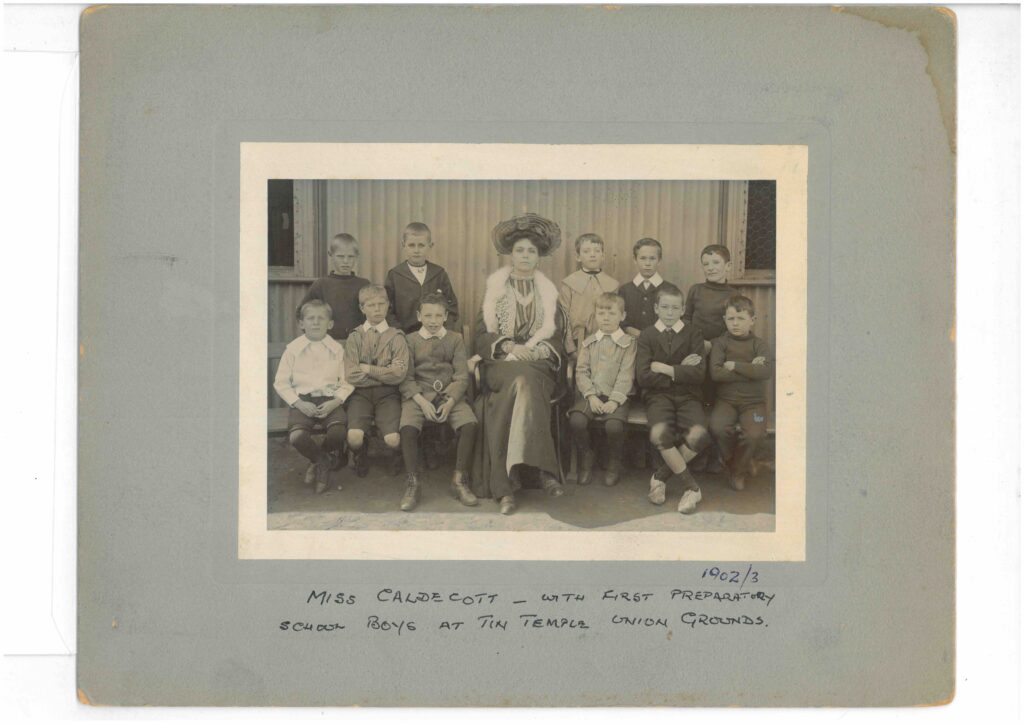
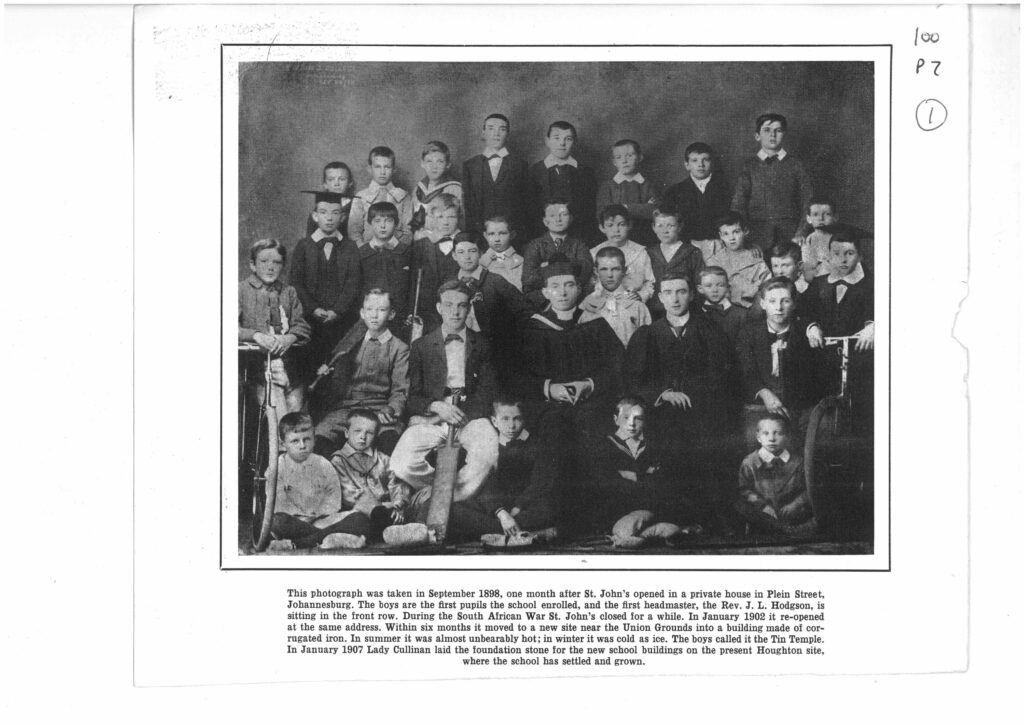
In describing the motivation behind the exhibition and how St John’s rich heritage informs its brilliant future, St John’s Pre-Preparatory Headmistress and Chair of the Heritage Committee, Jane Lane, explains:
“By storytelling and restructuring place narratives, reshuffling and redefining narratives, and understanding what is already there, finding connections, and from there, envisioning the future, we promote integrity and diversity, allowing participants to disconnect from dominant narratives and to express a vision for alternative futures.”
“The limits of the past should be constantly addressed and reviewed. Sometimes, attending to seemingly insignificant detail opens up huge questions for the imagination.”
“Change and innovation have been at the heart of the College experience. I have been lucky to witness and experience a school constantly adapting to the times while holding fast to the values and ideals that shaped the College, then and now. In every generation of students, one thing remains the same: all are committed Johannians!”
A mere twelve years younger than Johannesburg itself, St John’s has grown from very humble beginnings – eleven boys and two desks – to a school community that spans continents but with its heart set firmly in the City of Gold.
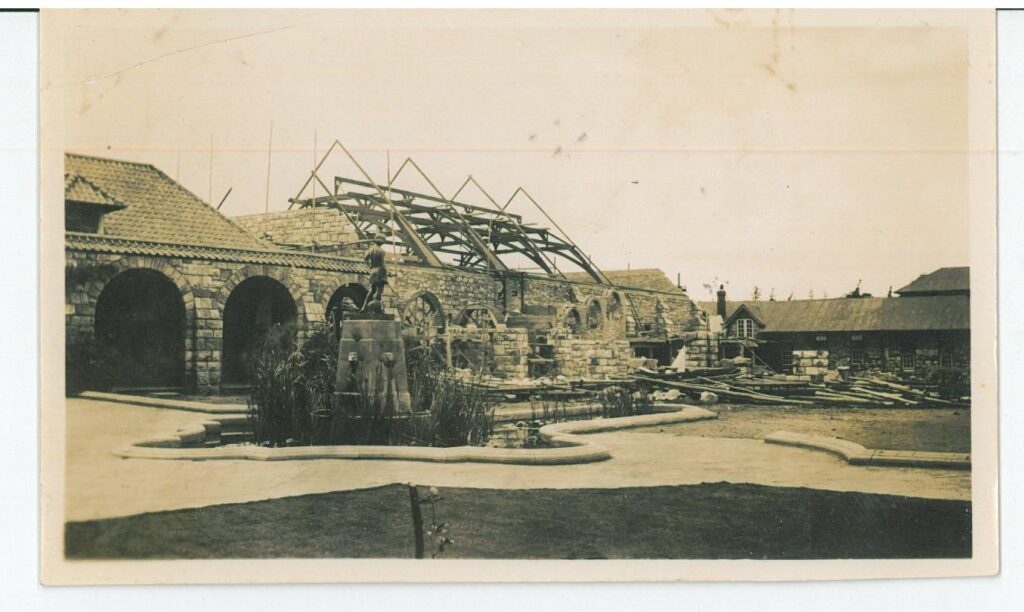
The College was established on the 1st August 1898 as a parish school of St Mary’s Anglican Church. In 1906 the Community of the Resurrection, a monastic order of the Church of England, took on responsibility for St John’s – a watershed moment for the school.
The early years of St John’s were marked by a number of challenges.
Having gone through the Second Anglo-Boer War, when the First World War broke out in 1914, many students from St John’s College answered the call to duty. Some 300 young men from the college served in the war, with 60 making the ultimate sacrifice. Eleven were decorated for gallantry, including Captain Oswald Austin Reid, who was awarded the Victoria Cross for “most conspicuous bravery in the face of desperate circumstances and for dauntless courage and gallant leadership.”
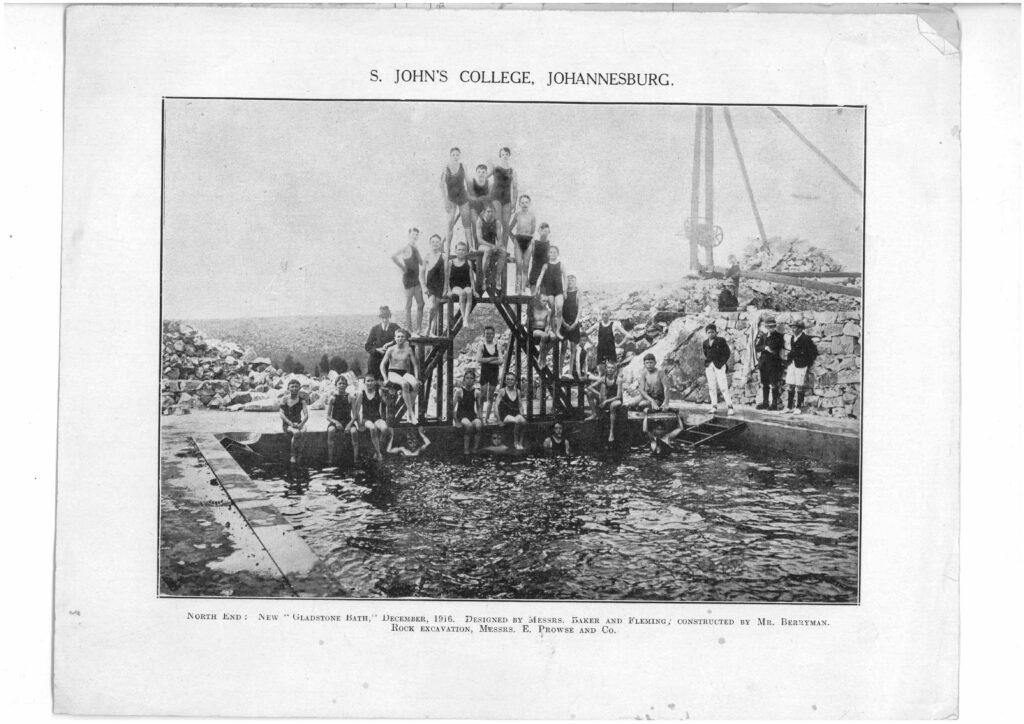
Just 21 years after the Great War, St John’s College was again called upon to serve its country. In the Second World War, 876 Johannians saw active service, with 94 brave souls losing their lives. The Crypt Chapel was converted into an air-raid shelter and sandbagged, and all staff received firefighting and first aid training. The senior cadet boys were also trained in using Bren guns and mortars, doing their part to assist in the war effort.
In the years leading up to apartheid, the school was not immune to the political and social changes that were taking place in South Africa. Despite not being actively involved in the struggle against apartheid, St John’s College was connected to and heavily influenced by the work of remarkable individuals such as Father Huddlestone, Bram Fischer and Hugh Lewin OJ (Nash 1956/Sixth Form 1957) – all notable anti-apartheid activists.
In 1941, the College started a night school for black staff members, including Louis Motlanthe, the father of former President Kgalema Motlanthe.
Following the Sharpeville Massacre in 1960, in which police killed 69 anti-pass protestors, Bishop Ambrose Reeves, then Visitor of St John’s College, was sheltered from the security police by Deane and Dot Yates at their home in Rose Road. Bishop Reeves was an outspoken opponent of apartheid and was deported from South Africa the following year.
In 1974, the College Constitution was amended to remove any reference to race in admission requirements. This paved the way for the college to admit its first black African and Indian students in 1979. In 1985, Desmond Tutu was installed as Bishop of Johannesburg and Visitor to St John’s. This was a significant moment for the college, as Tutu was a vocal opponent of apartheid. In 1990, the college appointed its first black teacher, and in 1994, South Africa entered a new democratic era. St John’s played its part in the transition, and the College’s commitment to diversity and inclusion has continued to this day.
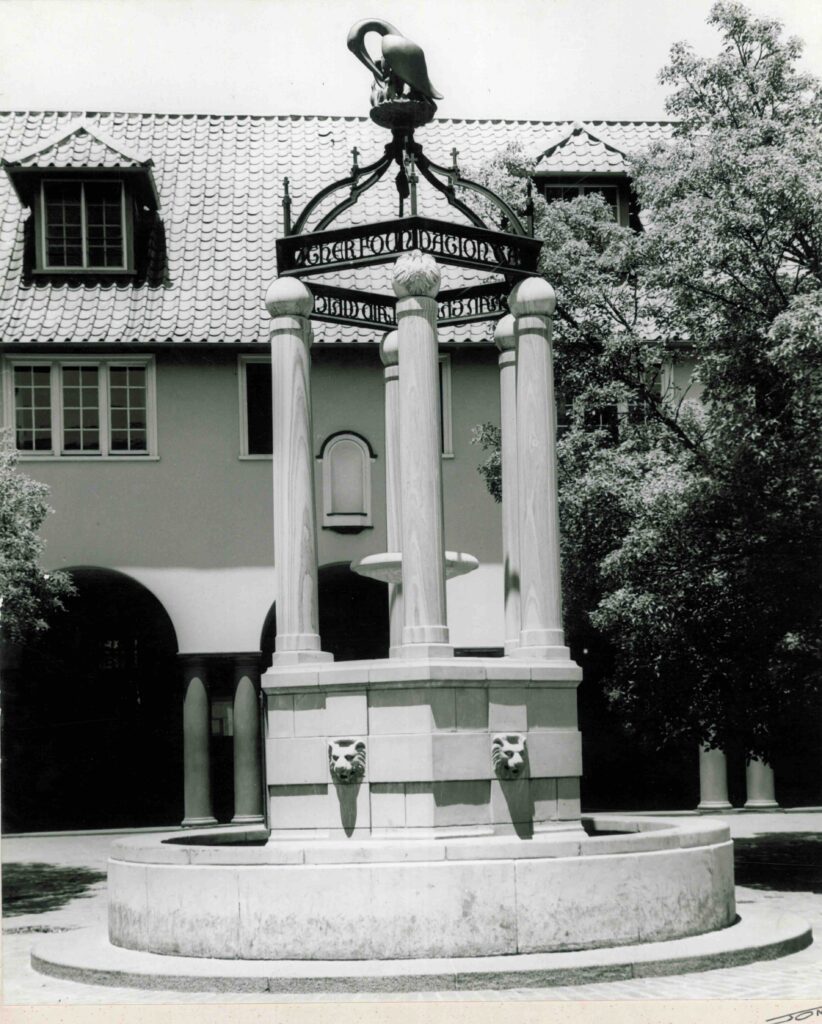
The 125th-anniversary celebrations are a chance for the college, and its alumni and friends, to reflect on the past 125 years whilst also thinking deeply about the present and how the school can best navigate the next 125 years in a rapidly changing and challenging world. It is a future that will not only be sustained by an excellent education but by the values that have shaped St John’s since the very beginning: respect, service, integrity, and, as a bedrock, faith in God.
Stuart West, the 16th Executive Headmaster at St John’s College, hopes that the exhibition will inspire the St John’s community to continue the school’s Venture of Faith, as reflected in the 125-year story of the school. He says:
“The story of St John’s College is an inspiring one, for it is a story of generations of leaders, students, parents, staff and Old Johannians drawing on the light, life and love of God in a remarkable Venture of Faith that has stood for 125 years. The past 125 years have seen St John’s shaped by the good times but, more importantly, by having to rise and then rise again in fiercely challenging times. This Venture of Faith proudly and confidently continues into the future.
“At this moment, marking 125 years since our humble beginnings in Plein Street, we celebrate the light of all who have added their own distinctive leadership, vision, service and indelible stamp to the development of our magnificent School and in rightly training generations of Johannians in body, mind and character. In 2023, we are joyful in the knowledge that it is our time to dream; our time to envision this next moment in our Venture of Faith; our time to work tirelessly and faithfully to ensure that St John’s is a home for all, where sound learning may flourish and with knowledge and goodness at its core. As an old Jesuit schoolmaster expressed beautifully: The education of youth is the renewal of the world.”
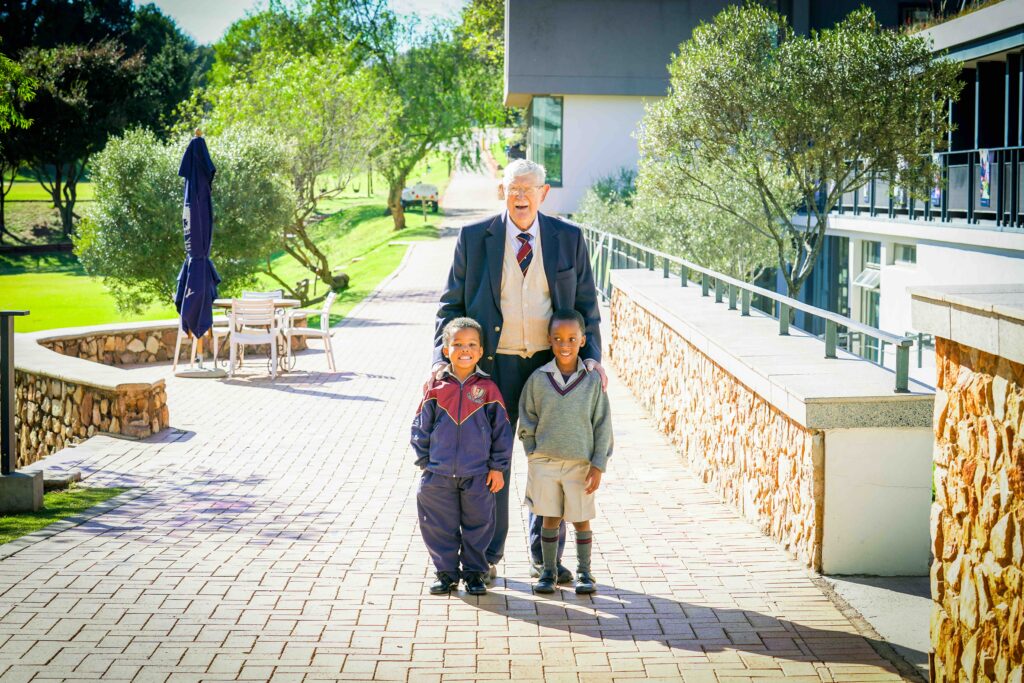
The following extracts from the exhibition shine a light on St John’s history of working towards racial justice and equality for all:
- 1898: On 1 August, St John’s College opens in Plein St, Johannesburg. The first Headmaster is the Rev JL Hodgson. Johannesburg is 12 years old.
- 1914-1918: First World War. The Spanish Flu causes the College to close for most of the last term of 1918.
- 1920: St John’s launches an extensive building programme. ‘The buildings should be in stone, not brick … The ideal of all education is to know God, and beautiful buildings help to remind us of our ideal.” Fr. Eustace Hill CR
- 1941: Native night school starts. 14 staff members enrol, among them Louis Motlanthe, father of former President Kgalema Motlanthe.
- 1948: The National Party comes to power, and apartheid becomes official policy.
- 1957: The St John’s College Education Fund is created. Clarence Ndlovu is the first recipient. Bishop Clayton writes to Prime Minister Strijdom, protesting racial segregation.
- 1960: Sharpeville Massacre. Bishop Ambrose Reeves (the Visitor of St John’s College) is sheltered from the security police by Deane and Dot Yates at their home in Rose Street. He is deported in 1961.
- 1974:The College constitution deletes reference to colour in admission requirements.
- 1979: The first Black African and Indian students are admitted to St John’s.
- 1985: The Right Rev Desmond Tutu becomes The Visitor of St John’s College.
- 1990: FW de Klerk announces the unbanning of the ANC, PAC and other organisations. Nelson Mandela walks free. The first Black teacher is appointed at St John’s.
- 1998: St John’s celebrates a hundred years. The Centenary Scholarship Programme is launched.
- 2018: The Dignity & Anti-Discrimination Policy is adopted by the St John’s Council.
- 2020: The LGBTQIA+ flag is raised at St John’s.
- 2023: St John’s celebrates 125 years of excellence.

